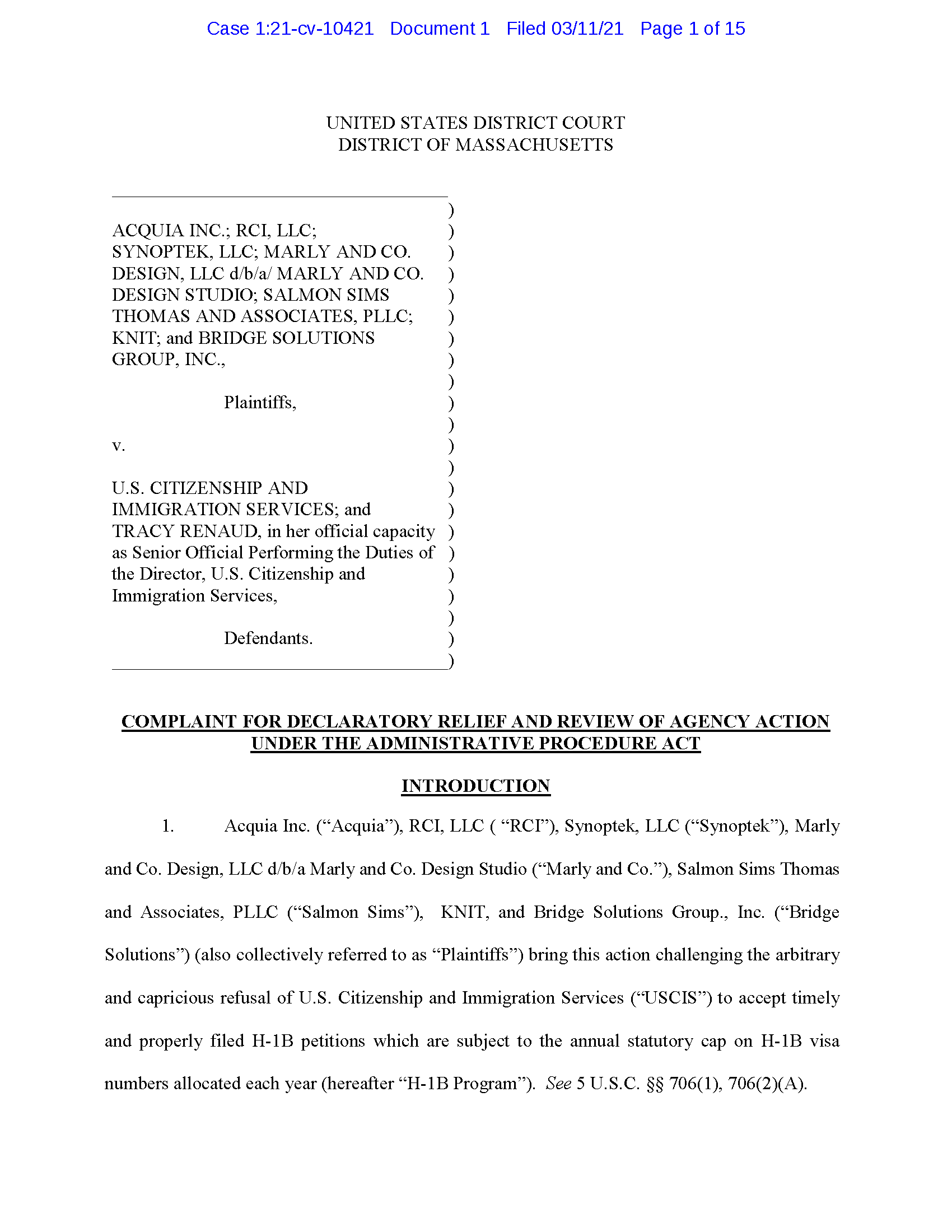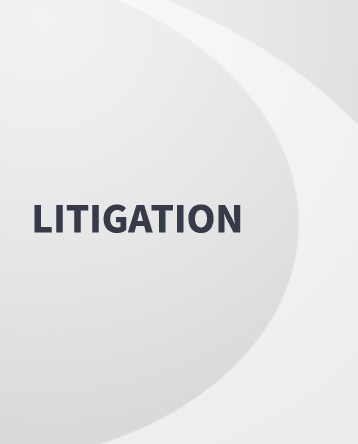- Litigation
Challenging USCIS’ Arbitrary Rejections of H-1B Petitions Filed After October 1
Acquia Inc, et al., v. USCIS, Case No. 1:21-cv-10421 (D. Mass.)
This lawsuit, filed on behalf of seven U.S. employers whose H-1B petitions have been unlawfully rejected, challenges U.S. Citizenship and Immigration Services’ (USCIS) arbitrary and capricious refusal to accept timely and properly filed H-1B petitions which are subject to the annual statutory cap on H-1B visa numbers allocated each year.
USCIS arbitrarily rejected H-1B petitions filed after October 1 simply because the H-1B worker’s intended employment start date—naturally—also fell after October 1.
Based on this timeline, USCIS created an absurd choice: foreign workers needed to start on October 1 (and not a day later), or the U.S. employer had to misrepresent the intended employment start-date by “back-dating” the petition.
USCIS has not rejected these petitions across the board—some with an employment start date after October 1 have been accepted without issue. There is no law, regulation or form instruction that require an employer to specify only an October 1 start date in the H-1B petition.
On April 29, 2021, the U.S. employers voluntarily dismissed the lawsuit after USCIS agreed to accept and adjudicate the H-1B petitions that the agency had previously rejected and the employers had received receipt notices for their refiled petitions.
The lawsuit was filed in the federal district court for the District of Massachusetts by the American Immigration Council, and the law firms Mintz Levin, Cohn, Ferris, Glovsky & Popeo, PC; Joseph & Hall, PC; Meyner and Landis LLP; Barnes & Thornburg LLP; and Driggs Immigration Law.
The American Immigration Council and our partners have written guidance and a sample complaint for attorneys with clients whose similarly-situated H-1B petitions were rejected for failing to back-date the start date to October 1, 2020.


